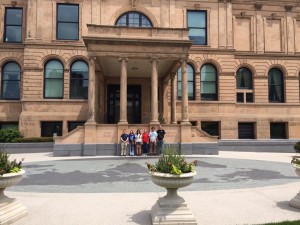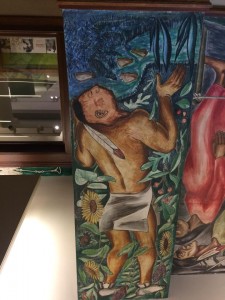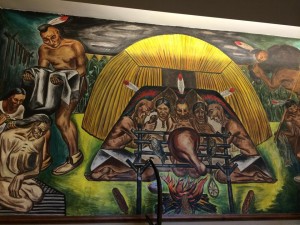Today we went to visit the World Food Prize Hall of Laureates in Des Moines. What used to be the public library in Des Moines has been renovated to serve as the Hall of Laureates to the World Food Prize. The World Food Prize was established by Norman Borlaug, who was a winner of the Nobel Peace Prize and wanted to establish a different award that specifically rewarded innovation in food. While touring the Hall, we learned about the World Food Prize, which I discovered was in line with the types of ideas that surround conventional agriculture. The World Food Prize rewards innovators who are able to find ways to grow larger quantities of food to feed more people. Therefore many of the winners of the Prize are involved with genetic modification of foods. Robert Paarlberg, who wrote Food Politics, seems to be in agreement with those behind the World Food Prize, in that he believes that conventional agriculture is the correct way to do agriculture to grow increased yields from crops. In one chapter in his book, he outlines the Green Revolution, which was led by Norman Borlaug, and ultimately decides that it was what needed to happen given the increasing world population. While he does recognize some problems that the Green Revolution caused and continues to cause, he says that without it, there would be many more starving people in the world and a much smaller food supply. While I understand the argument behind the idea that there needs to be innovation in agriculture (that may mean genetic modification) to feed a growing population, how far will we go to keep feeding our parasitism on this earth? Maybe the fact that we are having to genetically modify the food that the earth gives us to survive should be a warning that we are growing too much as a species and consuming too much. This definitely is not my final stance on things, but it is just a thought that I am considering at the moment. 



FARM
Furman Students Investigate Ag Practices, Policies, and Politics in Iowa

Love all the blogs – you guys are really making me think!